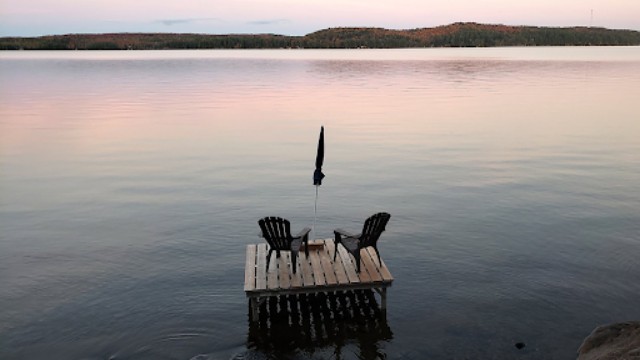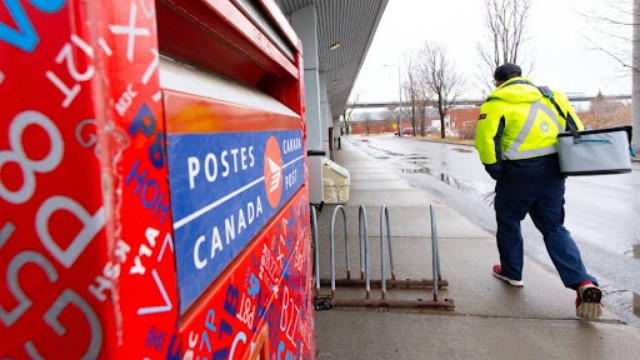
Fewer Canadians may be planning to buy vacation homes this year compared to previous years, but prices are still expected to rise. A report from Royal LePage says demand continues to be stronger than the number of available properties in most areas. In the photo, Muskoka chairs are placed on a dock overlooking Boshkung Lake in Algonquin Highlands, Ontario, on Monday, October 5, 2020. (Photo: THE CANADIAN PRESS/Giordano Ciampini)
The unofficial start of cottage season arrived with the May long weekend, but many Canadians are holding off on purchasing vacation homes due to rising financial concerns. According to a new report from Re/Max Canada, ongoing trade tensions and economic instability are prompting buyers to take a cautious step back.
The report, backed by a Leger survey from March, noted that improved affordability and falling borrowing rates had initially revived interest in Canada’s recreational property market last year. However, that renewed enthusiasm has now cooled off as economic concerns take center stage.
Nearly 60% of those affected by tariffs now feel less confident about investing in a vacation property. The ongoing trade disagreements between Canada and the U.S. are a key reason behind the slowdown.
Don Kottick, President of Re/Max Canada, acknowledged the chill in the market. “Things really shifted when trade issues came up,” he said. But he remains hopeful. If a trade agreement is reached soon, the market might rebound quickly. “People still want vacation homes—they’re just waiting for a more stable picture.”
Despite the pause in enthusiasm, sales aren’t expected to drop across most recreational areas. Re/Max predicts flat to moderate growth in transactions, with prices anticipated to rise around 1.8% nationally in 2025.
In Ontario, the cottage market is currently in a holding pattern. Both buyers and sellers are keeping a close watch on economic signs like job numbers and inflation. Half of Ontario’s cottage regions have seen prices fall by as much as 20% compared to last year. Areas like Niagara-on-the-Lake, Peterborough County, Orillia, and Grand Bend have been hit hardest—mainly due to more properties being listed for sale.
On the other hand, regions like Simcoe County, Prince Edward County, and Sudbury are seeing price hikes thanks to limited listings and steady demand.
In British Columbia, cottage prices are predicted to inch up by about 1.1% next year, supported by balanced market activity.
Carrie Lysenko, CEO of real estate platform Zoocasa, said Canadian buyers are treading carefully. “We’re seeing ups and downs, and people are responding with caution,” she explained.
However, some popular vacation spots like Muskoka seem to be weathering the storm. “Muskoka has a different type of buyer,” Lysenko added. “It’s often wealthy individuals looking for investment or third homes.” She even referred to it as the “Hamptons of the North,” a nod to its ongoing popularity.
There’s also a trend of Canadians stepping back from purchasing property in the U.S., partly due to tariffs and the stronger U.S. dollar. Last year, Canadians were the top foreign buyers in the U.S., spending an average of over USD $830,000. Now, more are likely to invest within Canada instead.
Zoocasa’s recent findings suggest that as fewer Canadians buy vacation homes south of the border, domestic destinations such as Whistler, Muskoka, and Vancouver Island could see renewed interest.
The Re/Max report echoed that view, drawing comparisons to the pandemic period when local tourism surged due to global restrictions. If that pattern repeats, cottage country might bounce back sooner than expected. However, affordability remains top of mind for many. Nearly 6 in 10 survey participants said that unless prices stay within reach, they won’t consider buying.
As Don Kottick put it, “It all comes down to how much extra income people have to work with.”















